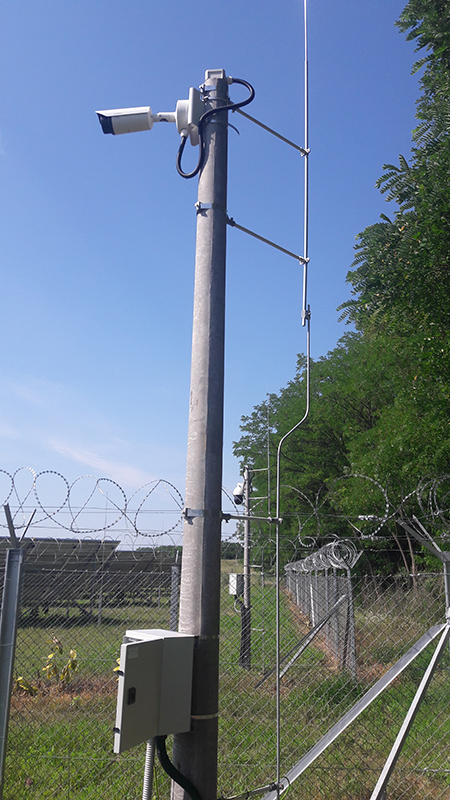 European energy group MVM had 14 photovoltaic power plants that needed to be protected in high-residential areas while protecting the privacy of neighbouring residents. Because of their locations, these sites were at high risk of vandalism, trespass, and theft of equipment. Also due to the adjacent residential settings, traditional security technology such as fence detection and outdoor visual CCTV could not be used.
European energy group MVM had 14 photovoltaic power plants that needed to be protected in high-residential areas while protecting the privacy of neighbouring residents. Because of their locations, these sites were at high risk of vandalism, trespass, and theft of equipment. Also due to the adjacent residential settings, traditional security technology such as fence detection and outdoor visual CCTV could not be used.
The MVM security team turned to Hanwha Vision for its thermal cameras to protect its high-value photovoltaic assets while adhering to GDPR and protecting personal privacy. Over 100 thermal cameras were installed along with PTZ cameras with a handover function. The thermal cameras included the TNO-4030T, TNO-4040T, and TNO-4050T.
Tamás Tánczos, Security Engineering at MVM said: “[Using thermal cameras] was a natural choice when we realised that on these sites we couldn’t use fence protection, infrared, or microwaves to detect intruders. With the thermal cameras, we could rest assured that no personal data would be gathered.”
The cameras help protect the photovoltaic sites without compromising neighbouring residents’ privacy. They come equipped with Motion detection, Handover, Tampering, Loitering, Directional detection, and Audio detection features built-in to boost operators’ situational awareness. The TNO-4040T and TNO-4050T can additionally detect changes in temperature, such as a potential fire, and shock detection, which could indicate displacement or hard blows to the device.
While the camera is constantly scanning for potential intrusion and motion detection, operators can continue to work on other activities with alerts issued for any events that need their response. This makes the system more intelligent and efficient compared to traditional fence detection or basic CCTV cameras.
Because the cameras work through thermal imaging, they are not affected by low light levels or visibility, so inclement weather doesn’t impact their effectiveness. Operators consistently receive good images and resolutions no matter the environmental conditions.
The project initially involved 14 sites but as the effectiveness and benefits of the Wisenet cameras are proven, this is now expanding to other sites in MVM’s portfolio. The team is also considering adding thermal cameras with built-in AI due to launch soon.



